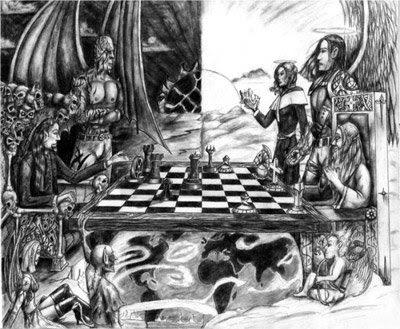
High fantasy, or epic fantasy, is a subgenre of fantasy fiction that is set in invented or parallel worlds. Built upon the platform of a diverse body of works in the already very popular fantasy genre, high fantasy came to fruition through the work of authors such as C. S. Lewis and, foremost, J. R. R. Tolkien, whose major fantasy works were published in the 1950s. While it is far from being the oldest fantasy subgenre, high fantasy, along with sword and sorcery, has become one of the two genres most commonly associated with the general term fantasy.
These stories are generally serious in tone and often epic in scope, dealing with themes of grand struggle against supernatural, evil forces. It is one of the most popular subgenres of fantasy fiction. Some typical characteristics of high fantasy include fantastical elements such as elves and dwarves, magic, wizards, invented languages, quests, coming-of-age themes, and multi-volume narratives.
High fantasy is a well-defined genre with established characteristics. This contrasts with low fantasy, a term that can be defined in many contradictory ways, each separate in its own way from high fantasy.
In some fiction, a contemporary, "real-world" character is placed in the invented world, sometimes through devices such as portals to other worlds or even subconscious travels. Purists might not consider this to be "true" high fantasy, although such stories are often categorized as high fantasy due to the fact that they've yet to be classified as their own distinct subgenre, and often resemble this subgenre more closely than any other.
High fantasy worlds may be more or less closely based on real world milieus, or on legends such as Arthurian. When the resemblance is strong, particularly when real-world history is used, high fantasy shades into alternate history.
When the scope is less than epic, dealing with the hero's personal fight for personal stakes against evil forces, the epic fantasy may shade into sword and sorcery.
High fantasy is the most popular and successful subgenre of the fantasy fiction. Its fandom ranges from Tolkien to contemporary. Recent screen versions of Tolkien's The Lord of the Rings, Pullman's Northern Lights and Lewis' The Lion, the Witch, and the Wardrobe have contributed to the subgenre's continuing popularity. Moreover film adaptations of some novels are in preproduction, such as David Farland's The Runelords, and also Terry Brooks' Magic Kingdom of Landover and The Elfstones of Shannara.



